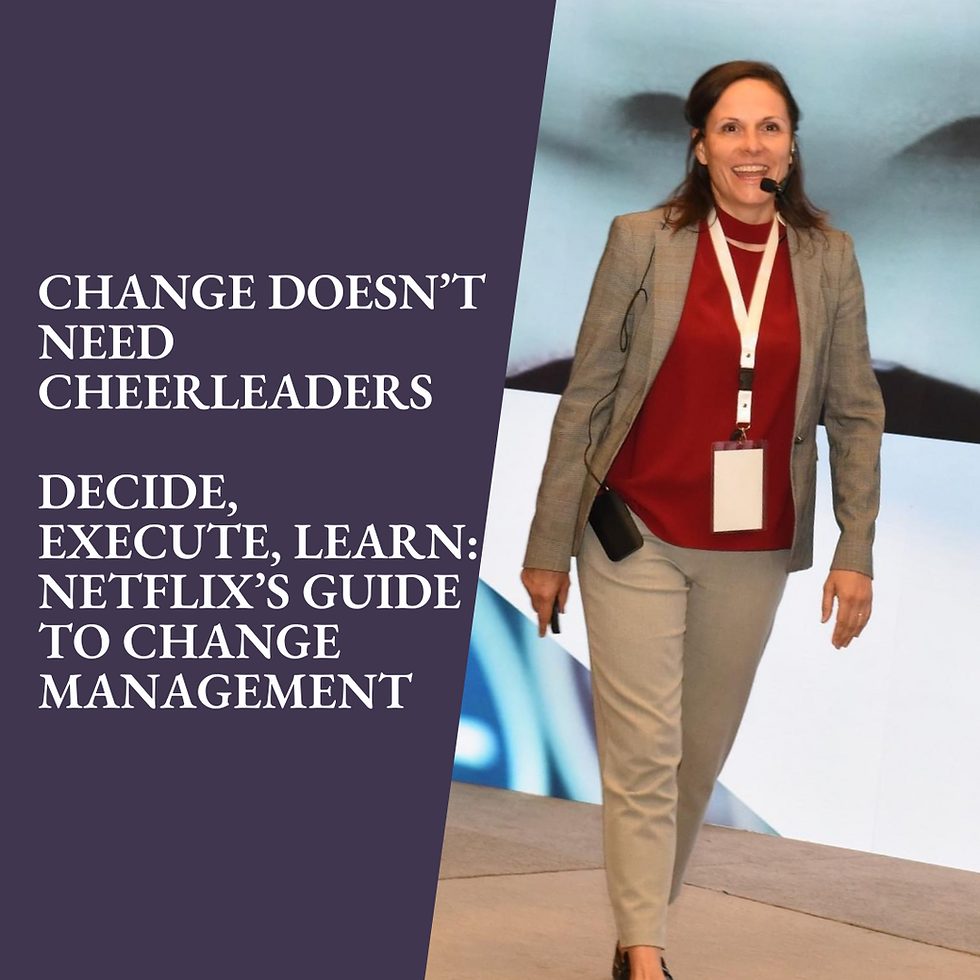Are organizations and L&D too scared to change leaders' behaviour?
- Szilvia Olah

- Aug 27, 2022
- 3 min read
As a Gallup Strengths coach, I regularly run individual and team sessions using the Strengths assessment. People absolutely love learning about themselves through data. Whenever I present them with an assessment or even a test (I test colleagues a lot at work), they get energised, nervous, and curious. Suddenly, they want to know what the paper says about them. With my latest leadership workshop design using the Big Five personality assessment, I allowed a group of senior leaders to dig deep into their own and their colleagues' ways of thinking, feeling, and perceiving the world.
It turns out that what people are the most interested in is themselves.
And we know that! Yet, development programs fail to cater to this need. Instead, we teach people leadership frameworks they cannot relate to and tell them all about the non-existent list of "This is how good leaders look like" even though there is no evidence of that. We desperately try to mould them into somebody they will never be. The result? Confused, misrepresented, and misunderstood individuals walking around in organizations behind the masks of "Leadership know-how".
The number one reason leadership development programs fail is the lack of self-knowledge and self-awareness. This is followed by underestimating the mindset, which could be addressed easily if we did pay attention to who the person is. Leadership programs aim to change behaviour by adjusting underlying mindsets, analysing and understanding personality traits, and applying strengths. Whilst organizations and L&D professionals are aware of this, they are reluctant to address the root causes of why leaders act the way they do. Doing so can be very uncomfortable for leaders, mentors, and the program facilitator, but if there isn't a significant level of discomfort, change in behaviour is unlikely. Identifying the deepest thoughts, feelings, assumptions, and beliefs is usually the precondition for behavioural change; unfortunately, one is too often left out of development programs.
But this is what I just did this week when I rolled out a Leadership workshop that looked at the leaders' Big Five personality traits. They learned about themselves, about their other colleagues, and we looked at the team dynamic. I was able to advise the boss who is likely to challenge his decisions, who are the ones who are concerned about relationships, who are dutifully and diligent and who might need a little push to keep the deadlines. We looked at whether the team is a short-term thinker or a long one. Whether the team is sensitive to negative feedback or receptive. We looked at who are the creative minds and how their Strengths profile aligned with their personality profile (as a team). They started to understand why they react to certain things the way they do, who are the quiet but major contributors who may be dominated by the "loud ones" and hence cannot really be heard. Who are the anxious ones and the risk takers. And so on.....
All this is from their personality assessment. Did a few of them feel uncomfortable from time to time? Yes! But understanding ourselves and allowing others to see how we operate is liberating. They no longer need to hide whatever they want to hide. They can say, "Hey, this is how I work, this is how you work, let's see how we can make it work together". Did I feel uncomfortable? No, I am low on neuroticism I have no shame:-)
And this is what I call a behaviour change!
.png)



Comments